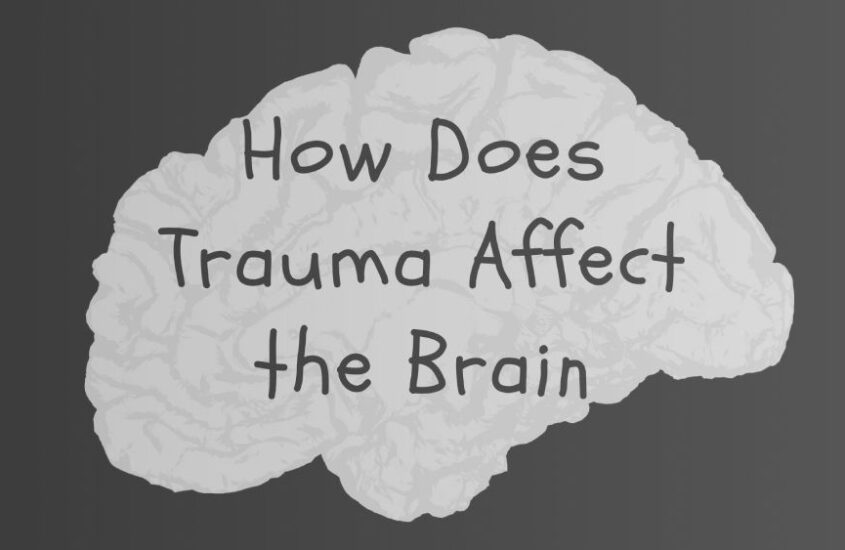How Does Trauma Affect the Brain

It is difficult to describe how complex and elegant a system the human body truly is. Our bodies have evolved to help us adapt, survive, and thrive in almost any environment. At the heart of our adaptability are our own survival instincts and the elasticity of the brain. In the simplest terms, as humans, we exist in conversation with the world around us — built to respond and adapt to stress and trauma in order to survive.
While, in many ways, this adaptability is a gift, it also means that trauma leaves a lasting mark on us — particularly when it comes to the function of the brain. In today’s post, we’ll explore that phenomenon in detail.
Trauma & Stress
When we encounter something traumatic or experience prolonged periods of stress in our lives, our bodies respond by entering fight-or-flight mode. In this mode, our body preps us for survival, priming us for danger. When a threat is detected, our amygdala signals this to the rest of the body — triggering the production of stress hormones such as cortisol and adrenaline. Our heart rate quickens, our rate of breathing changes, our reflexes improve, and our senses sharpen.
In the scope of human evolution, this mechanism has helped our ancestors survive countless dangers over thousands of years — but the modern world, in many ways, has outpaced it. Our bodies aren’t always able to differentiate between life-or-death struggles and social or emotional dangers.
Importantly, this fight-or-flight instinct comes with a cost: when triggered too often, it leaves a lasting impact on the landscape of our brain. These changes are written into our bodies, modifying the function of the brain and influencing how we perceive and interact with the world around us.
Hyperactivity in the Amygdala
Our body’s stress response is governed by the amygdala, which is responsible for identifying and responding to threats. When the amygdala is overstimulated, or activated repeatedly over a long period of time, it can cause it to become hyperactive. In those situations, we’re left feeling perpetually on edge. Our body is constantly on high alert for danger. The slightest sign of danger may trigger the production of stress hormones — leading to panic attacks, anxiety, and mood swings.
Impulse Control and the Cortex
In a life-or-death situation, reaction time is crucial. Accordingly, trauma influences the development of the prefrontal cortex. This is your body’s way of disabling mechanisms that evaluate decisions for safety in favor of improved reflexes. In practice, this results in attention deficit, inability to focus, and difficulty with regulating emotions.
Memory and Trauma
Generally speaking, our bodies store memories as either implicit or explicit memories. Explicit memories are those which we can easily recall on demand. In contrast, implicit memories are those associated with danger or trauma. The hippocampus controls the process of storing memories and is modified by high levels of stress hormones like cortisol. Think of an explicit memory as the ability to recall someone’s birthday or the number of windows in a bedroom. Implicit memories are more foundational. These memories are triggered rather than consciously recalled.
As a result, people who have experienced significant trauma may find those experiences difficult to recall. At the same time, they may struggle with unwanted flashbacks, panic attacks, and other such experiences.
Schedule an Appointment
While trauma may influence the development and function of the brain, those changes are not irreversible. Our brains are tremendously adaptable and capable of healing those wounds over time with the proper techniques and guidance. For more information on how to deal with these changes and heal them, please reach out to schedule an appointment.
Sheryl Reto, MSW.LCSWA. EMDR trained
- Specialties: trauma and PTSD, anxiety, grief and loss, depression, self-esteem, life transitions, teen counseling, terapia en español.
- In network with Aetna, BCBS (most plans), CBHA and Cigna/Evernorth, accepts out of network and self pay






